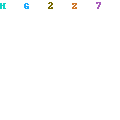Grudem: The Trinity & Creation

In the fourteenth chapter of Grudem's Systematic Theology, the theology of the Trinity is discussed. This has long been a topic of debate throughout the history of the church. Perhaps why it has been such a debated topic is the finite mind of man trying to comprehend the infinite God. Therefore, our understand of the trinity is limited.
To begin, one can conclude that the trinity is a biblical matter. Grudem goes into great detail to show that Scripture does support such a notion and that it is not a product of the church.
What is the Trinity? Grudem says it best, "God eternally exists as three persons, Father, Son, and Holy Spirit, and each person is fully God, and there is one God" (p. 226). Another way of stating the trinity without falling into heresy (there is plenty out there) can be as such:
1. The Father is God, the Son is God, and the Holy Spirit is God.
2. The Holy Spirit is not the Son or the Father.
3. The Son is not the Father or the Holy Spirit.
4. The Father is not the Son or the Holy Spirit.
5. There is only one God.
Confused? I will not unpack this any further, in fear of making the statement more complicated than it is. Suffice to say that this theology is not a simple one and we must see God as he has shown Himself in Scripture.
In the following chapter, Grudem explores the question of why, how, and when did God create the universe. There was one area of concern that must be addressed because of the theological consequences at stake.
On page 298, Grudem makes the following point:
"Both 'young earth' and 'old earth' are valid opinions for Christians who believe the Bible today."
This statement stood out to me more than any other point in the chapter. Many proponents of the "old earth" view take a non-literal approach to the Genesis 1 text. There are a few concerns I have with this approach:
1. The creation account should be taken literally. There seems to be a hermeneutical limbo when one tweaks with the the intended meaning of the author. Proponents of the old earth view must take the Genesis 1 account as allegorical, or poetic. This is theologically dangerous because the question can be asked: when do we stop taking the book of Genesis as a poetic piece? Genesis 2? Genesis 3? One can easily see that this can become a serious problem.
2. The Age of Adam. This point was the "nail in the coffin" in my debate between the two views. In Genesis 5:5 we read, "So all the days that Adam lived were nine hundred and thirty years, and he died."(NASB)
This brings up a point that I have seen very few theologians make: Man was made on the sixth day and then God rested on the seventh day. Adam lived to be 930. How then, can a "day" in the creation account mean millions of years? Was the sixth day of creation somehow lesser in years than the previous? Here, we see a hermeneutical difference: Should we take Adam's age as something poetic or literal? The main point I am trying to emphasize is the hermeneutical issues that arise when one adapts an "old earth" approach.
Overall, Grudem does treat the issue very well. He is very clear and understandable concerning this very debatable issue. Indeed, one should never dismiss other views because it exercises one's views in a way that can strengthen it. Sometimes, other views may be right and as a student of Scripture, one should be humble enough to change one's mind on a particular subject.




0 comments:
Post a Comment